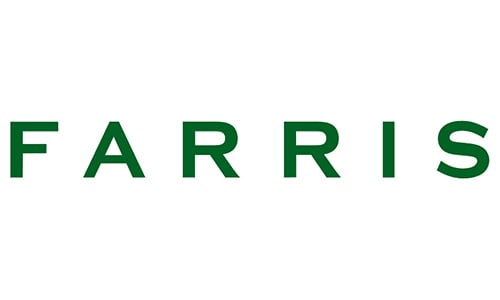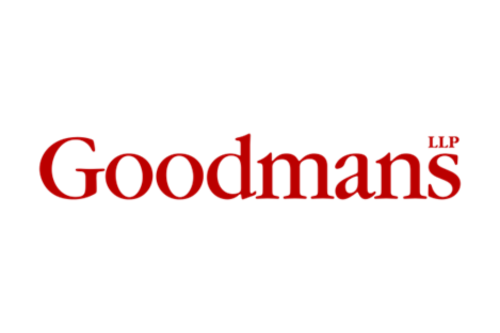Canada’s 2024 Budget proposed new legislation that aims to enhance the effectiveness of the Canada Revenue Agency (CRA), but Farris’ Michelle Moriartey argues it comes at a cost. She sat down with Lexpert to discuss the significant changes, what she calls a ‘new audit climate,’ and the potential impact on the audit and dispute resolution processes for corporate taxpayers and their advisors.
Q: Could you provide an overview of the significant changes to the CRA's administrative powers introduced in the budget?
A: Draft legislation released with the 2024 Budget introduced five material changes to the CRA’s powers under the Income Tax Act (Canada). According to the Budget 2024 Tax Measures Supplementary Information, these changes are intended to “enhance the efficiency and effectiveness of tax audits and facilitate the collection of tax revenues on a timelier basis”. However, while the draft legislation might achieve these purposes, it is at the cost of creating a more adversarial relationship between taxpayers and the CRA and, possibly, impeding taxpayer rights under the Canadian Charter of Rights and Freedoms.
First, the draft legislation proposes to create a new power of CRA officers to compel persons to give information or documents under oath or affirmation, or by affidavit. This power is akin to a right of examination for discovery in a court proceeding. However, unlike a court proceeding, the draft legislation contains no legislative safeguards governing the CRA’s use of the power.
Second, the draft legislation proposes to create a new “Notice of Non-Compliance” (“NNC”) regime. In brief, if a person fails to comply with a CRA requirement, then the CRA may issue a NNC to the person. This causes the normal reassessment period (ie. the post-filing period within which the CRA can reassess a taxpayer’s return) of the person, or a person that does not deal at arm’s length with that person, to be suspended until the requirement has been answered to the satisfaction of the CRA. The person is also subject to a penalty of $50 per day while the NNC is outstanding, to a maximum of $25,000 per NNC. Multiple NNCs can be issued to a person at any time.
Third, the draft legislation proposes to provide a further remedy to the CRA for a person’s failure to comply with a foreign-based information requirement. Currently, the CRA may compel a Canadian resident taxpayer or a person carrying on business in Canada to provide any foreign-based information or document, including a document that is not in that person’s possession or control. If a person fails to comply, then the taxpayer to whom the information relates may be prohibited from entering that information into evidence in a Tax Court of Canada appeal. The draft legislation proposes to permit the CRA to also apply to the Federal Court of Canada (FCC) for a compliance order which compels the person to provide the foreign-based information. While in theory this remedy is useful to the CRA, it is questionable whether the FCC would grant such an order having extra-territorial effect, particularly where there is no evidence that the person controls the foreign information sought.
Fourth, the draft legislation proposes to impose a new penalty on a taxpayer to whom a FCC compliance order has been issued. The penalty is equal to 10 percent of the “aggregate amount of tax payable” by the taxpayer for each year to which the compliance order relates. The penalty does not apply if the taxpayer does not have at least $50,000 of tax payable in one of the applicable years.
Finally, the draft legislation introduces several more circumstances where a taxpayer’s normal reassessment period is paused, including where the taxpayer or a person that does not deal at arm’s length with the taxpayer (such as a parent or subsidiary corporation) has an NNC outstanding, or where a person that does not deal at arm’s length with the taxpayer seeks judicial review of a CRA requirement or the CRA seeks a compliance order against that person.
Q: How might these changes affect tax litigation and dispute resolution processes for corporate clients?
A: As a starting point, the NNC regime places great pressure on taxpayers to comply with CRA requirements quickly. This is concerning given the complexity of tax disputes and the fact that many cases are won or lost on questions of fact or credibility. Quick answers are often not the best or most complete answers. Also, while the penalty for a late response may seem nominal to some corporate clients, the suspending of the normal reassessment period could have a material impact on the outcome of an audit where the taxation year is nearing the expiry of the normal reassessment period.
Also, the CRA’s new power to compel information under oath has potential to dramatically alter the course of audits. If implemented, the CRA could question all material witnesses to a transaction or event under oath prior to even issuing an assessment, including current and former employees and contractors and business and tax advisors of corporate clients. As a result, experienced tax counsel will likely need to be engaged at the outset of an audit to oversee and manage the introduction of that evidence. We expect there will be much more litigation arising as to procedural matters, such as who may attend an examination under oath (including how many representatives of a corporate client may be examined – consider Canada v. Cameco, 2019 FCA 67, where the CRA sought to examine approximately 25 personnel from the taxpayer and subsidiaries and under old legislation was prohibited from doing so), whether a transcript will be produced, and whether CRA’s questions are within the scope of the audit or seeking information about unnamed persons. It begs the question: if the CRA will have the ability to question anyone under oath in an audit, is it still appropriate that CRA would also get the benefit of assumptions in tax appeals?
The new power to compel information under oath also has the potential to create conflicts of interest between tax advisors and their clients. For example, will accountants now be required to give evidence to an auditor under oath regarding their recollection of events giving rise to a taxpayer’s return being filed in a taxation year beyond the normal reassessment period? Will an accountant be compelled to give evidence under oath about the purpose of a tax plan they developed, were involved in, or created filings for, and to what extent will that accountant’s evidence be subject to solicitor-client privilege in cases where they were engaged by a law firm on behalf of the client? While these issues have arguably always been concerns in the tax dispute process, they generally have not arisen unless or until a matter proceeds to the Tax Court of Canada.
Equally concerning is the new 10% compliance order penalty. The penalty is seemingly automatic and does not account for circumstances where a taxpayer had a bona fide belief that the CRA’s requirement was beyond the scope of their lawful authority. There are many circumstances where it is advisable to refuse to provide information without a compliance order, particularly where there are concerns about whether information is protected by solicitor-client privilege. Current case law suggests that a due diligence defence may be available to a taxpayer who has been assessed a compliance order penalty, but the taxpayer would need to first object to the penalty assessment and, if a large corporation, pay 50% of the amount assessed. To compound matters, the draft legislation does not define what the “aggregate amount of tax payable” is. By its plain language, it could extend beyond tax in controversy to the total amount of tax payable for a given taxation year. Thus, the penalty could be vastly disproportionate to the amount in controversy. If enacted, the penalty is likely to be subject to a constitutional challenge.[1]
Q: What proactive steps should corporate clients take to prepare for these changes and mitigate risks?
A: Each client’s circumstances differ, and in this new audit climate it is recommended they seek representation by an experienced tax litigator to assess audit risks and develop a strategy that will mitigate any such risks to the greatest extent possible. However, in general, there are steps all corporate clients can take in an audit.
First, upon receipt of CRA requirements, clients should take care to document the date of receipt and diarize the deadline to respond. Corporate clients will also want to quickly decide who from within their organization is responsible for compiling what information, and to document all steps taken to collect that information in a timely way. If the information is expected to be delivered late to CRA, an extension of time should be sought in writing with detailed reasons given for the extension request. The greater the diligence and cooperation that a person shows in attempting to respond to CRA queries, the more challenging it will be for the CRA to justify the issuance of a NNC.
Also, corporate clients will want to act proactively if in receipt of CRA requirements that may seek information beyond the scope of the CRA’s powers. To avoid the potential compliance order penalty, a taxpayer should consider bringing a pre-emptive application for judicial review of the CRA requirement in the Federal Court of Canada.
Finally, corporate clients will want to ensure their personnel have had sufficient time to prepare for a CRA interview. If personnel are required to give sworn testimony, they should be represented by legal counsel in the interview. The consequences of making a false sworn statement can be severe and may include an adverse credibility finding in the client’s audit, civil penalties, or criminal sanctions for the witness.
[1] For a detailed discussion on this point, see the May 29, 2024 letter from the Tax Executives Institute to the Honourable Chrystia A. Freeland, P.C., M.P., Deputy Prime Minister and Minister of Finance.
***
 Michelle Moriartey is a partner in the Tax Group and leads the tax litigation practice at Farris LLP. Michelle has extensive experience in all aspects of tax litigation and dispute resolution, including representing clients in disputes with the Canada Revenue Agency (CRA) and the Ministry of Finance, from the audit and objection stages to appeals before the courts. Michelle regularly appears on tax matters before the Tax Court of Canada, the Federal Court of Canada, the Federal Court of Appeal, and all levels of courts in British Columbia. Michelle also resolves tax problems through other means, including voluntary disclosures, taxpayer relief requests, rectification and rescission proceedings and remission applications.
Michelle Moriartey is a partner in the Tax Group and leads the tax litigation practice at Farris LLP. Michelle has extensive experience in all aspects of tax litigation and dispute resolution, including representing clients in disputes with the Canada Revenue Agency (CRA) and the Ministry of Finance, from the audit and objection stages to appeals before the courts. Michelle regularly appears on tax matters before the Tax Court of Canada, the Federal Court of Canada, the Federal Court of Appeal, and all levels of courts in British Columbia. Michelle also resolves tax problems through other means, including voluntary disclosures, taxpayer relief requests, rectification and rescission proceedings and remission applications.





